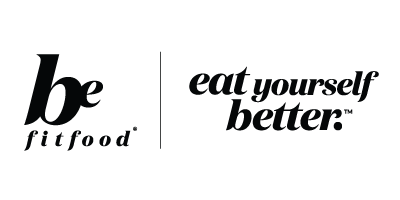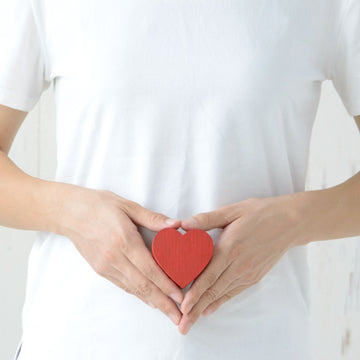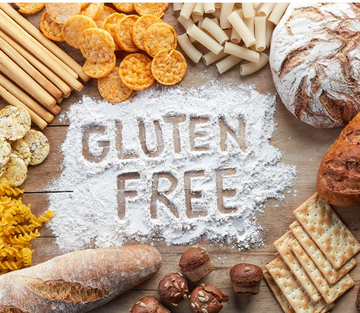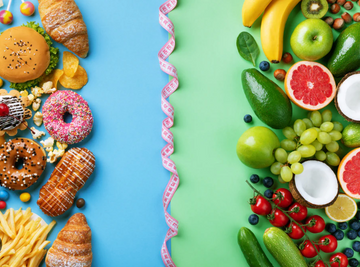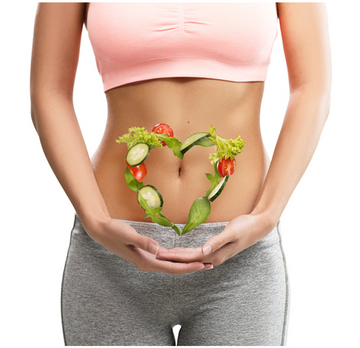Did you know that our bodies have 10 x more bacterial cells than they do human cells? Technically, we are 10% human and 90% bacteria!
What is even more interesting, is that our human DNA would actually fit in our big toe compared to our bacterial DNA taking up the rest of our bodies in comparison. Therefore, what could possibly be more important than nurturing our good gut bacteria? Our gut is lined with billions of bacteria that ultimately determine our overall health. Our bacteria even have the power to activate and deactivate certain genes, therefore controlling our bodies. Throughout our gut, these bacteria have the ability to interact with our brains through the gut-brain connection.
95% of the serotonin (a neurotransmitter that controls our sleep, appetite and mood) is produced in our gut. The inner workings of our digestive system can therefore guide our emotions. Neurotransmitters are highly influenced by our gut bacteria. This highlights that the food we eat plays a critical role in our mental health. Several studies have shown a correlation between lower incidence of mood-related conditions such as depression in those who consume a less processed, Mediterranean-style diet when compared to those who consume a more processed, Western diet which is high in refined sugars.
The foods which are rich in the Mediterranean diet include vegetables, fruits, nuts, seeds, legumes, unprocessed grains plus small amounts of lean meat, chicken, fish, eggs and dairy products. Plant-based foods are often also high in dietary fibre which is the main source of food for the microbiome (gut bacteria). There are several different types of dietary fibre including soluble fibre, insoluble fibre and resistant starch. Choosing a variety of plant-based foods in your daily diet is important to ensure that we develop diversity within our microbiome as this balance is linked to improved well-being.
All of the Be Fit Food meals follow a Mediterranean-style approach, with 4-12 veggies per meal, low carbohydrates and high in lean meat protein.
A recipe to try that ticks all the boxes!
Lentil Dahl – Serves 4
12+ plant based ingredients plus high in fibre for good gut health!
Ingredients
1 tablespoon of olive oil
1 teaspoon of ground turmeric
1 teaspoon of ground cumin
1 teaspoon ground coriander
½ fresh chilli (sliced)
1 teaspoon of tomato puree
1 brown onion (chopped)
2 garlic cloves (crushed)
600g of pumpkin (butternut) cut into cubes
2 carrots (chopped)
300g eggplant (cubed)
400g tinned chickpeas (drain and rinse)
100g yellow split peas (rinsed)
100g red lentils (rinsed)
100g green lentils (rinsed)
400 ml coconut milk
400g diced tinned tomatoes
1 L vegetable stock
300g of green beans
Handful of Coriander
½ cup Probiotic Greek yoghurt
1 cup brown rice
½ cup quinoa
Method:
- Heat a large saucepan over low heat and warm the tablespoon of olive oil, add the brown chopped onion and sauté until fragrant, add garlic and chilli, and cook for a couple of minutes, stirring occasionally
- Add spices and tomato puree to the saucepan
- Add pumpkin, eggplant and carrot and pour in the coconut milk, diced tinned tomatoes and leave to simmer for 7 minutes.
- Add chickpeas, peas and lentils, along with vegetable stock
- Mix well and leave to simmer for 30-35 minutes or until vegetables soften, stir frequently
- Cook brown rice and quinoa as per packet instructions
- Steam green beans (approx. 5-6 minutes or until softened slightly)
- Serve 4 bowls with lentil and vegetable mix on top of the cooked brown rice and quinoa and a side of the green beans
- Top with coriander and yoghurt as desired
